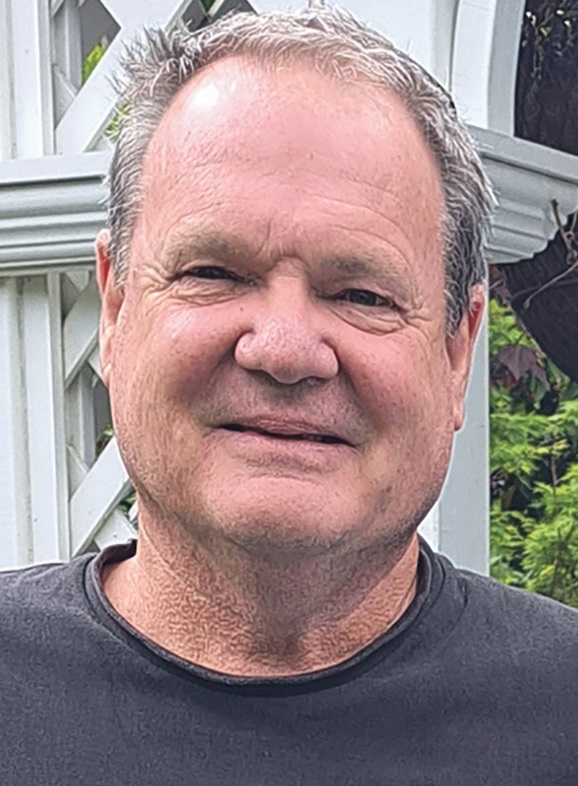
The sculptures signifying the gateway to Ōtaki were officially opened on Friday, February 17, at the southern sculpture on Old Hautere Road.
The sculptures represent somewhat of a coup for Ōtaki, as they were installed as part of a deal that included them in the Peka Peka to Ōtaki (PP2Ō) expressway build. When the idea was first promoted by then Ōtaki Ward councillor James Cootes, a Gateway Steering Group was formed to liaise with the PP2Ō team, Kāpiti Coast District Council and the Ōtaki community.

The scuptures have been designed to indicate that motorists on the expressway are on the outskirts of Ōtaki, with the hope that they will draw them into the town. They reflect the values of local iwi and the wider community.

At the official opening of the sculptures were, from left: former councillor and Gateway Steering Group member James Cootes, expressway project manager Glen Prince, architect Matt Bangs, artist Piri-Hira Tukapua (and baby), Andie Goldie of Fletcher Construction, Justin Hall, local steering group members Christine Papps and Rupene Waaka, Mayor Janet Holborow, and Fletchers senior communications advisor Sacha Haskell. The cloaked time capsule stands in front of them.
Photo Mark Coote
The opening included a blessing led by Ngā Hapū o Ōtaki with representatives from Waka Kotahi, KCDC, mana whenua and the community.
The southern sculpture can be accessed from Old Hautere Road next to the shared pathway between Peka Peka and Ōtaki; the northern sculpture is near the overbridge by the northbound expressway on-ramp. Both sculptures are highly visible to motorists on the expressway and local roads. especially when lit up at night.
The three strands of each sculpture represent significant local waterways – the Waitohu and Mangapouri streams, and the Ōtaki River – winding together to meet in a circle at the top representing Tama-nui-te-rā, the sunny rays of Ōtaki.
Kaumātua Rupene Waaka said they also represent the iwi confederation of Ngāti Toa Rangatira, Te Ati Awa and Ngāti Raukawa, as well as a kō, a Māori cultivation tool, linking into the rich history of horticulture and gardening in Ōtaki. The kō was also used as a weapon that commemorates the settlement of this district in the time of Te Rauparaha.
Stainless steel discs with cultural narrative and pictures etched on them have been embedded in the concrete foundations underneath the sculptures.
Standing six-metres high, each strand weighs about four tonnes. The sculptures have landscaped and planted areas surrounding them, with bench seats and pathways so the public can get up close.
Waka Kotahi principal project manager Glen Prince credited the sculptures and the landscaping that surrounded them to the design and production teams involved, who worked closely with the artist Piri-Hira Tukapua, mana whenua and community groups – along with the PP2Ō Gateways Steering Group, which provided guidance and helped progress the project.
“They’re fantastic landmarks for Ōtaki and the people who worked to create them should feel incredibly proud,” he said. “It’s pleasing to see how large infrastructure projects like this can also leave behind a wonderful cultural legacy and enhance the environment within the areas and communities they touch.”
A time capsule containing artefacts that represent the history of the project as well as the history and culture of the area, has been buried near the sculpture at the southern end. The artefacts include items that were donated by the community and archaeological relics discovered on site during the earthworks phase of the expressway project (and a copy of Ōtaki Today).

Ian Carson is editor of Ōtaki Today.
OTHER POSTS FROM THE EDITOR
LATEST POSTS
- Concerts line up for rotunda
- No respite for ‘cone town’
- Trout spawn in Winstone Lakes
- Rāhui Rd next in line for road works
- ‘Monkey’ back to old tricks
- Ōtaki dominates awards night
- Sam risks all for Gaza
- Heniti ‘proud to call Ōtaki home’
- Infrastructure works keep rolling on
- An ONZM for arts, sport, heritage
- Trappers aim for predator free Te Horo
- Te Horo hall wants land for car park
- Beach burglars pinch trailer and tools
- Toilet vandalism ‘tragic, sad’
- Fifty years for Ōtaki fire chief
- Idiots in cars’ block highway
- Oiroa Kaihau – a focused career soldier
- ‘Aunty Gabe’ Rikihana gone at 98
- Te Horo Hall opens for ‘future generations’
- Demographic shift offers ‘new opportunities’
